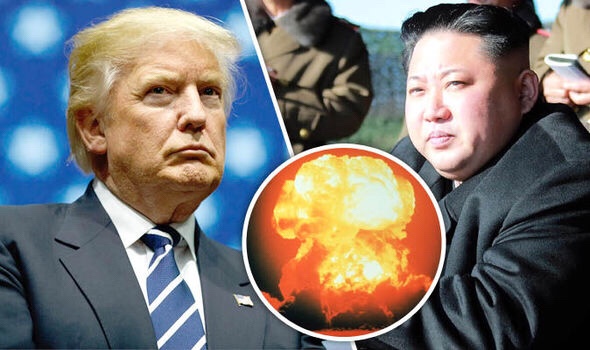 The Trump Administration's Approach to North Korea Is Genuinely Terrifying
The Trump Administration's Approach to North Korea Is Genuinely TerrifyingH.R. McMaster
North and South Korea are engaging in genuine diplomacy for the first time in years, the former recently agreeing to send a delegation to Seoul for next month's winter Olympics in the hopes of easing military tensions. But peace on the Korean Peninsula appears to hang by the slenderest of threads. If a recent Axios dispatch is to be believed, the Trump administration is strongly considering what officials have dubbed a "bloody nose" strategy—limited airstrikes to prevent Kim Jong-un from further pursuing a nuclear program.
The tactic could plunge the United States into a nuclear war, endangering countless lives, yet it's a risk that Trump's national security adviser, H.R. McMaster, appears to be willing to take. "[He is] arguing more vocally, publicly and privately," the Wall Street Journal recently revealed, "that military options need to be considered."
According to a separate report, McMaster subscribes to a deeply pessimistic vision of the future, shaped by the scholars Jakub Grygiel and Wess Mitchell, as well as the historian Margaret MacMillan. In The Rhyme of History, MacMillan argues that the U.S. finds itself in a similar predicament as Britain on the eve of World War I, and that the West has deceived itself that the fall of Nazi Germany and collapse of the Soviet Union marked the end of "large-scale, all-out war."
"Geopolitics are back with a vengeance...after this holiday from history we took in the so-called post-Cold War period," McMaster echoed in a speech in Washington, D.C., this past December.
The lieutenant general and veteran of both Iraq wars contends that North Korea's development of a long-range nuclear missile would be the "most destabilizing development...in the post World War II period." Kim's brutal regime is unlikely to respond to deterrence, he reasons, so what is to prevent it from selling its weaponry to the likes of Iran and Syria or blackmailing the U.S. into withdrawing from South Korea under the threat of a nuclear strike on Los Angeles? Hence the desire to "bloody" Kim Jong-un's nose with a limited bombing campaign.
"What’s most striking about McMaster’s position on North Korea is that he has repeatedly dangled the possibility of preventive military action against the North despite his acute awareness of how unpredictable and potentially all-consuming such a conflict could be," writes Uri Friedman in the Atlantic. "Even if the United States initially carries out a limited 'bloody nose' strike—designed not to eliminate the North Korean nuclear program, but to signal that the United States is serious about rolling back the program—the mission might spiral into an all-out war against the Kim regime that experts estimate could involve weapons of mass destruction and leave thousands, even millions, dead."
John Nagl, a retired lieutenant colonel who co-authored the U.S. Army’s Counterinsurgency Field Manual with McMaster during the Iraq War, offers a similarly dire assessment.
"You don’t know what’s going to happen when you put that kind of energy into the system," he tells Friedman. "We give North Korea a ‘bloody nose.’ They respond with a conventional artillery strike on [the South Korean capital of] Seoul. We go nuclear. China mobilizes [to prevent the Kim regime’s fall]. There is every prospect of a ‘bloody nose’ for North Korea ending in global war between China and the United States.”
“A man who understands the dynamics that led to the First World War as well as H.R. does," Nagl adds, "should be even more cautious about the idea of preventive war with the North Korean regime."
While Trump has expressed a willingness, if not a desire, to scrap the United States' post-war alliances, McMaster believes they're all that's sustaining American empire. Yet both have shown they're prepared to use violent force in pursuit of U.S. interests, not necessarily as a last resort. Despite his reputation as one of the more sober voices in the administration, McMaster espouses a worldview no less cataclysmic than disgraced White House strategist Steve Bannon.
It's possible both he and Trump are simply bluffing—South Korean President Moon Jae-in has even credited Trump for his latest talks with Kim Jong-un, if only to appease his temperamental ally—but that seems unlikely. As Nagl observes ominously, “What H.R. says you can take to the bank.”
H/T The Atlantic
No comments:
Post a Comment